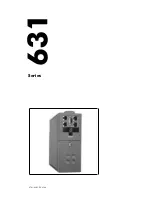
Hub van Doorneweg 8 • 2171 KZ Sassenheim – NL •
T
+31(0)252 228850 •
F
+31(0)252 228235 •
E
I
euronormdrives.com
54
55
NEURN030000_220_A
NEURN030000_220_A
8.2 EMC (Electromagnetic Compatibility)
8.2.1 Definition
Electromagnetic compatibility refers to the ability that the electric equipment runs in an electromagnetic interference
environment and implements its function stably without interferences on the electromagnetic environment.
8.2.2 EMC standard
In accordance with the requirements of the Chinese national standard GB/T12668.3, the inverter must comply with the
requirements of electromagnetic interference and anti- electromagnetic interference.
Our existing products adopt the latest international standards: IEC/EN61800-3: 2004 (Adjustable speed electrical
Power drive systems Part 3: EMC requirements and specific test methods), which is equivalent to the Chinese national
standards GB/T12668.3. EC/EN61800-3 assesses the inverter in terms of electromagnetic interference and anti-electronic
interference. Electromagnetic interference mainly tests the radiation interference, conduction interference and harmonics
interference on the inverter (Necessary for civil inverter).
Anti-electromagnetic interference mainly tests the conduction immunity, radiation immunity, surge immunity,
EFTB(Electrical Fast Transient Burs) immunity, ESD immunity and power low frequency end immunity (the specific test
items includes: 1. Immunity tests of input voltage sag, interrupt and change; 2.Commutation notch immunity; 3. harmonic
input immunity ; 4. input frequency change; 5. input voltage unbalance; 6. input voltage fluctuation). The tests shall be
conducted strictly in accordance with the above requirements of IEC/EN61800-3, and our products are installed and
used according to the guideline of the Section 7.3 and can provide good electromagnetic compatibility in general industry
environment.
















































